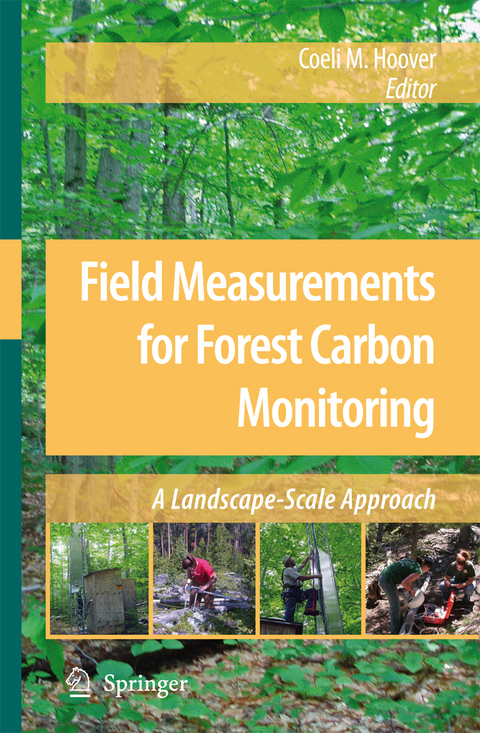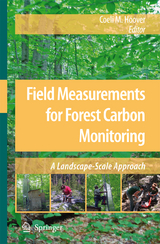Field Measurements for Forest Carbon Monitoring
Springer-Verlag New York Inc.
978-1-4020-8505-5 (ISBN)
Establishing a Landscape-Scale Forest Carbon Monitoring Site.- Defining a Landscape-Scale Monitoring Tier for the North American Carbon Program.- Study Site Characterization.- Meteorological Measurements.- Measuring Aboveground Carbon Pools.- Estimating Aboveground Carbon in Live and Standing Dead Trees.- Measuring Carbon in Shrubs.- Estimating the Carbon in Coarse Woody Debris with Perpendicular Distance Sampling.- Measuring Aboveground Carbon Fluxes.- Measuring Litterfall and Branchfall.- Methods for Estimating Litter Decomposition.- Measuring the Decomposition of Down Dead-Wood.- Measuring Belowground Carbon Pools and Fluxes.- Measuring Forest Floor, Mineral Soil, and Root Carbon Stocks.- Quantifying Soil Respiration at Landscape Scales.- Measurement of Methane Fluxes from Terrestrial Landscapes Using Static, Non-steady State Enclosures.- Measurement and Importance of Dissolved Organic Carbon.- Supplemental Variables for Carbon Cycle Modeling.- Forest Canopy Structural Properties.- Estimation of Forest Canopy Nitrogen Concentration.- Lessons from the Past and Opportunities in the Future.- Integrating Field Measurements with Flux Tower and Remote Sensing Data.- Landscape-Scale Carbon Sampling Strategy – Lessons Learned.
| Zusatzinfo | XVII, 240 p. |
|---|---|
| Verlagsort | New York, NY |
| Sprache | englisch |
| Maße | 155 x 235 mm |
| Themenwelt | Naturwissenschaften ► Biologie ► Ökologie / Naturschutz |
| ISBN-10 | 1-4020-8505-2 / 1402085052 |
| ISBN-13 | 978-1-4020-8505-5 / 9781402085055 |
| Zustand | Neuware |
| Informationen gemäß Produktsicherheitsverordnung (GPSR) | |
| Haben Sie eine Frage zum Produkt? |
aus dem Bereich




